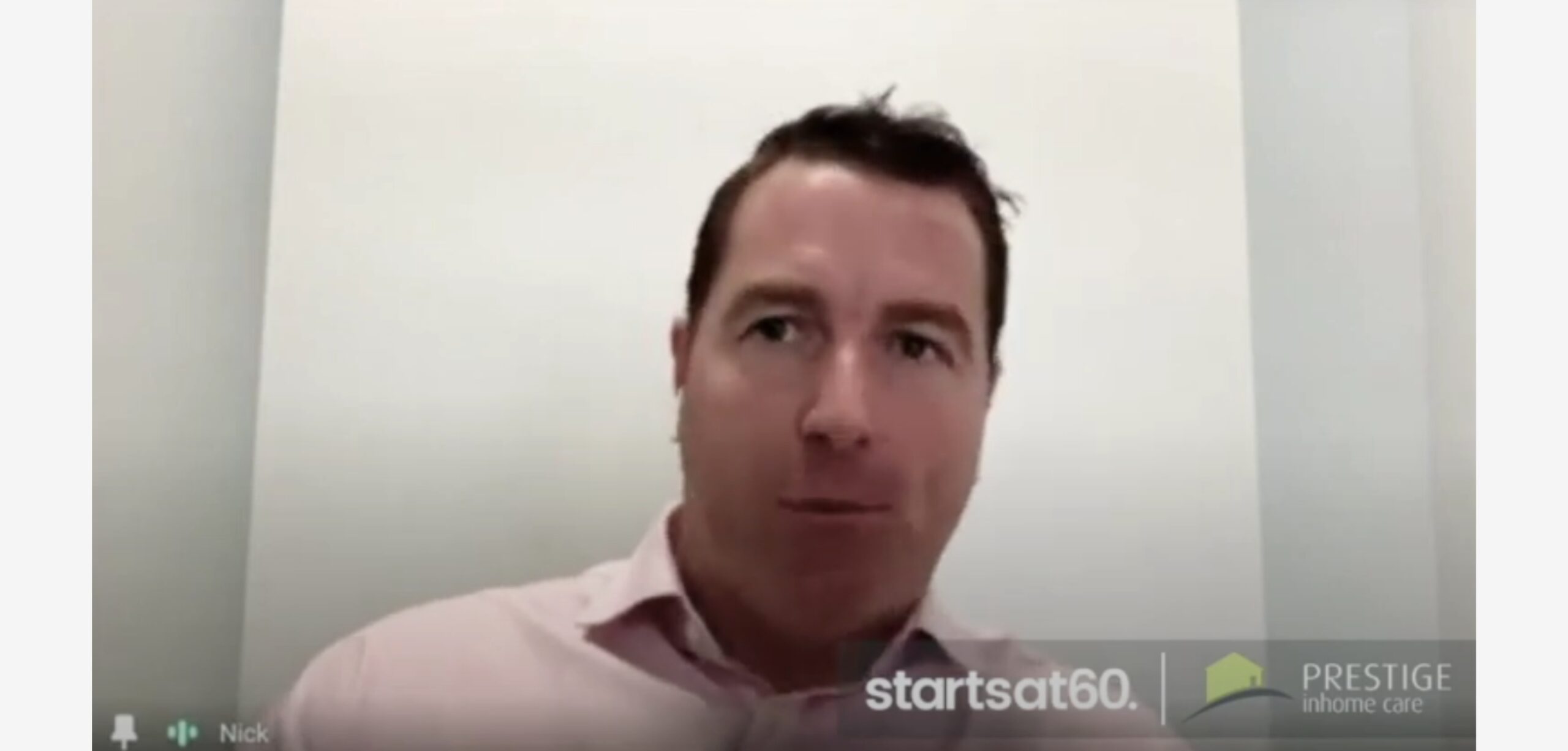In a recent interview with Starts at 60, Prestige Inhome Care Founder, Nick McDonald, shared a few tips on how to talk to your loved one about accepting help at home as they age.
Start the conversation early
McDonald says you should not leave it too late to have the conversation with your loved one.
“Don’t wait until you are in a crisis, or when your loved one has had a fall, or if they are at their wits’ end. Have the conversations early while people are still independent because you can have that conversation in a relaxed manner. It can be a two-way conversation rather than having to enforce them on people you love.”
Family members may be reluctant to accept outside help. But there are thoughtful ways to approach the topic and a starting point is to look for early signs of when your loved one might need outside help.
Early Signs That Your Loved One Needs Support
Some of the tell-tale signs that your loved one is in need of support or extra assistance at home include:
- Having difficulty finishing household chores. Is the fridge still stocked with fresh foods? Have they got meals they could just heat up and eat?
- Are they having trouble with everyday tasks such as cooking and cleaning?
- Have there been changes to their physical functions? This includes having difficulty walking up the stairs.
- Are there changes to their appearance? Had your loved one always maintained a well-groomed appearance but they are not wearing fresh clothes?
- Other signs include social withdrawal and changes to cognitive abilities.
McDonald says: “At Prestige Inhome Care, we have services from someone to who just cleans your house to really high-end nursing. People often are willing to accept getting help with cleaning the house because lots of people have that help and it doesn’t necessarily mean you are getting older.
“I think that’s a really good entrée into accepting care and getting them to understand ‘jeez this isn’t really that bad and it’s really handy’”.
Listen to Nick’s advice here.
For more information on care options for your loved one contact 1300 10 30 10
